Small Music Venues Are Disappearing in Montreal
Katacombes Is Just the Latest Victim of an Ongoing Trend
It’s not immediately that we’re going to feel the full impact of local music venues closing in Montreal, said Julien Senez-Gagnon, once a spokesperson for the now closed venue Divan Orange.
“It’s in five, 10, 15 years, when we’ll say that there are fewer and fewer local acts getting the chance to grow internationally,” he said. “There’ll be fewer because there are fewer opportunities, fewer places, less culture in Montreal.”
But, the closures come as gentrification has contributed to fundamentally transforming much Montreal over the past decade.
New businesses and high-priced real estate increase neighbourhood rents, often pushing out people and businesses that have helped define their communities for years, even decades.
RelatedVenues for live music offer something memorable to the concert goer, an experience they can’t get at home listening to Spotify.
But as gentrification continues to take hold, these small venues are disappearing.
In late October, Katacombes Co-op, known for its role in underground music scenes, announced it would be closing on Dec. 31 after 13 years of operation.
The reason? High rent prices at its Quartier des spectacles location on St. Laurent Blvd. The iconic black brick building is also in need of major repairs.
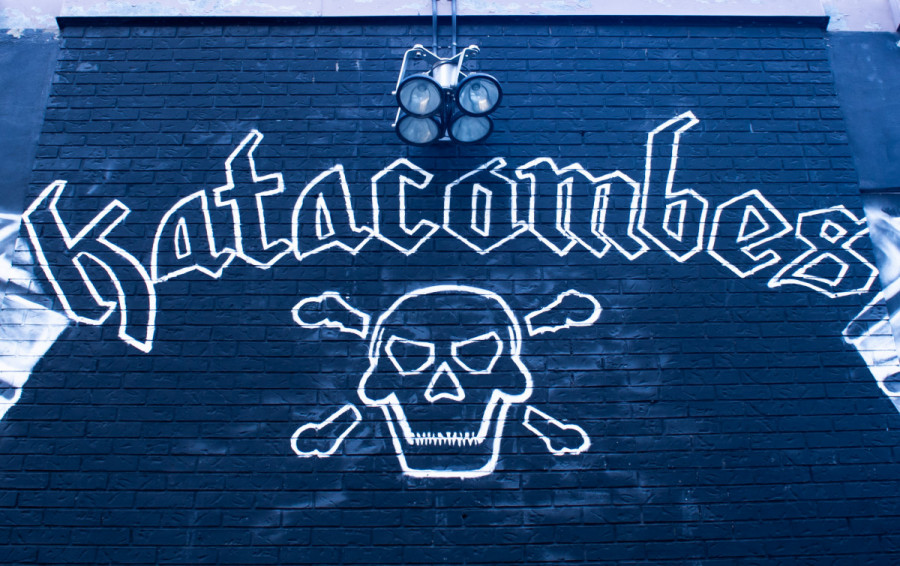
“This didn’t come out of nowhere,” said Janick Langlais, one of the co-owners of Katacombes. “It wasn’t an easy decision, but we’ve been having financial difficulties for years.”
While she said some of the members of the co-op have decided to move on to new things, she’s staying with what she knows. “I’ve spent half my life in this music scene. I couldn’t really see myself doing anything else.”
While known primarily as a hub for metal, punk, and other underground music genres, the venue had diversified its offerings quite a bit, adding variety shows, swing nights, improv comedy, and even corporate events to its calendar.
“We had a niche that I don’t think is really happening the same way anywhere else, and it’s going to be a shame to lose that,” said Langlais.
RelatedCécile Demers agrees. Demers is a costume designer and variety show producer that has had a lot of experience with Katacombes, both as a performer and as a member of the community.
Just days before the closing was announced, she produced the second edition of the Bal des sorcières variety show, which Katacombes offered the perfect backdrop for.
“It was made by the artistic community, plus the walls with the skulls, the dark ambiance—it was perfect for the event.”
To Demers, places like Katacombes are what make Montreal so special.
“All of these old buildings including Katacombes just have this incredible cachet. With a new building, you have to rebuild the whole cachet too.”
It isn’t just Katacombes or the alternative, punk, or metal scenes that are taking a hit from closing.
Katacombes’ situation is part of a larger trend.
Last March, Divan Orange, another co-op open for 13 years, closed for good, citing an accumulation of noise complaints and, much like Katacombes, a hike in rent prices.
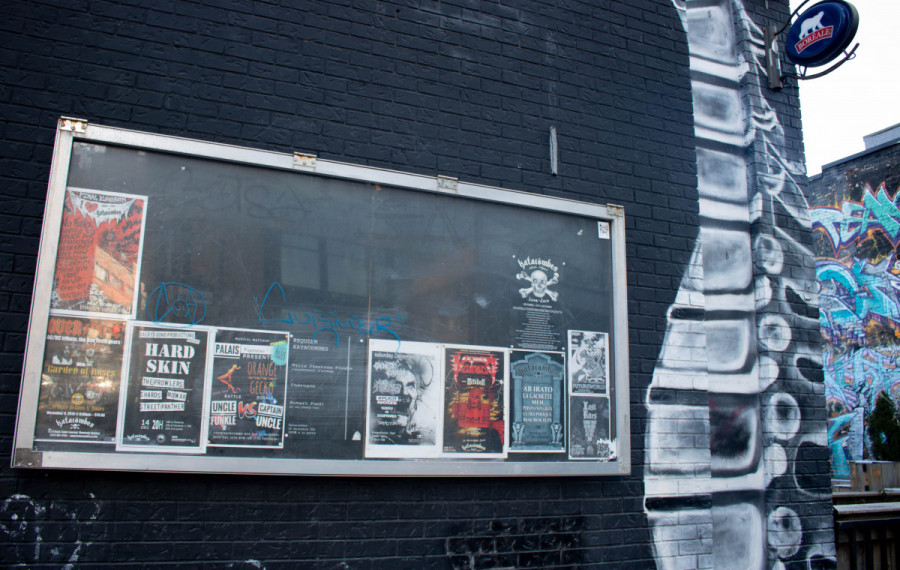
Meanwhile, Le Cagibi, a café and concert venue, was forced to move out of the Mile End due to a substantial rent increase that same year. It found a new location in Little Italy but lost the space needed to regularly host shows.
And that’s not mentioning other iconic venues such as Café Chaos or les Bobards, which closed in 2014 and 2015 respectively for reasons including high rents and noise complaints.
Senez-Gagnon was a part of Divan Orange right until the end. Since then, he’s stayed in the realm of Montreal’s local music scene by working at Quai des brumes, a bar and music venue on St. Denis St.
“I didn’t exactly fall out of my chair when I heard the news—not just that it was Katacombes, but that another venue is Montreal was closing,” said Senez-Gagnon.
Many of these smaller venues fit a certain niche in the Montreal artistic scenes, which could have had the effect of limiting their scope.
There is also the question of their purpose: Are they bars? Music venues? Both? Neither?
Senez-Gagnon said that Divan Orange knew that problem all too well.
“We wanted to tell people that we weren’t just a bar. We were also a concert venue, but we also wanted to say that we weren’t just a concert venue like Club Soda or the MTelus. That’s where it’s weird,” said Senez-Gagnon.
Langlais experienced the same sorts of problems with Katacombes.
Related“Since we aren’t really a bar, and we are only open on days with events, which isn’t every day, it’s really hard to get rent money with how our schedule was. With the rent going up and all the expenses we had to pay, it was becoming really hard,” said Langlais.
Gentrification isn’t a problem that is unique to artistic venues, but as they are more prone to financial instability, according to Senez-Gagnon, they often suffer the consequences earlier.
“Since these places are already vulnerable, when they close it’s kind of a sense of things to come for these neighbourhoods. When rents increase, they’re the first to go because they just can’t survive,” said Senez-Gagnon.
“All of these old buildings including Katacombes just have this incredible cachet. With a new building, you have to rebuild the whole cachet too.” — Cécile Demers
As venues keep closing, it’s easy to forget that new ones are also opening.
The Diving Bell Social Club, located in the Plateau, opened its doors in 2018 and has been home to a variety of events, including live music, stand-up, film screenings, and even pop-up shops.
Austin Wrinch, one of the co-founders and co-owners of the Diving Bell, knows gentrification well.
“I’m actually from Vancouver originally, so I feel like in a lot of ways I’m kind of like a refugee living here in Montreal, like, artistically,” said Wrinch.
“There it’s so far gone—it’s famously so unaffordable. The reason why Vancouver is known as ‘No Fun City,’ [is] music venues or anything that makes noise are a no-go. We definitely couldn’t do what we are doing now in Vancouver or Toronto,” he added.
RelatedBut there is one problem with the Diving Bell’s space: It’s on the third floor of an old building.
“We are obviously not very accessible, which really, really sucks,” said Wrinch.
“It’s kind of a situation where it’s the only real way that we can be financially accessible for artists. It really sucks that physical accessibility is no good. It’s kind of one of those things where if we were on the ground floor, we straight up could not afford the rent,” added Wrinch.
Even still, Wrinch believes they were lucky in finding this space at all. Evan Johnston, one of Wrinch’s partners, who is also involved with Barbossa on St. Laurent Blvd., heard from his landlord that there was a vacant space that was being used for storage.
Johnston and Wrinch had experience running do-it-yourself spaces in the past and had been looking for a location that would be more stable and productive. So far, the Diving Bell has met these criteria.
Space in Montreal is already at a premium in many boroughs, and finding a suitable location for a venue is as hard as it’s ever been.
“We did think about relocating [Katacombes], but after looking for two years, we realized there just wasn’t really anywhere we could move,” said Langlais.
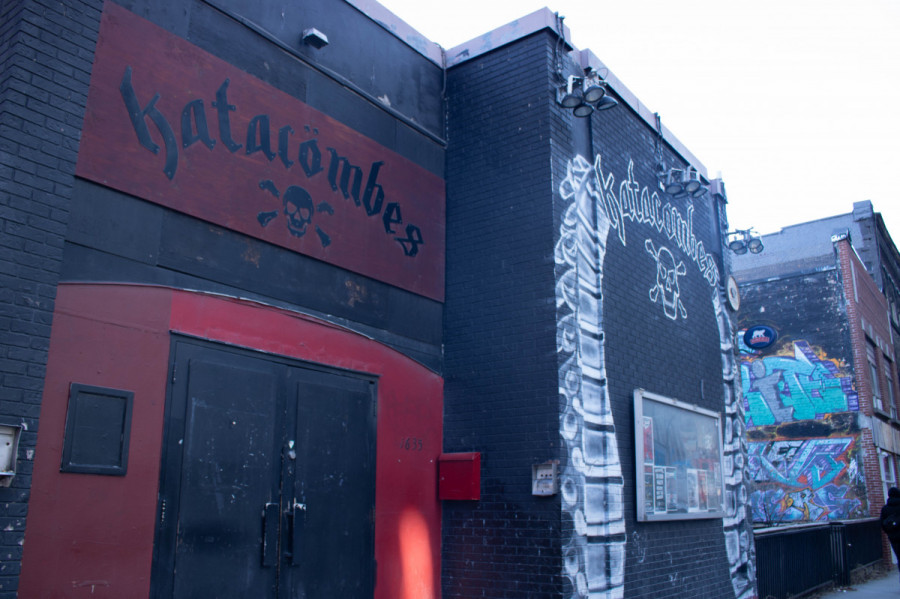
Even good spaces can be ruined by outside factors, especially noise complaints. Those complaints were a factor in the demise of Divan Orange, which accumulated huge fines because, as Wrinch put it, “some douchebag was calling noise complaints on them.”
In areas where luxury condos are popping up, like the Plateau, where some of these venues have traditionally been, noise could become a big nuisance for venue owners.
“It’s downtown, it’s made to be loud, so why are you setting up here if you don’t want that? It’s Montreal! Dude, go live in St. Lambert!” said Demers. “What we need is some sort of soundproof bunker. Barring that, all the loud stuff like us will have to go further and further away.”
Wrinch suggested that new venues would probably contribute to the gentrification problem in the neighbourhoods they’d move into as well, which could do more harm than good in the long run.
So, how do you keep smaller venues from closing?
According to Senez-Gagnon and Langlais, the government needs to offer more support to for-profit venues, especially as gentrification continues to raise operating costs.
“It is a question of political will,” said Senez-Gagnon. According to him, the city should adopt more legislation to better integrate music venues into neighbourhoods. And the federal and provincial levels of government need to recognize the contribution these venues bring to emerging music, he said.
“When we announced we were closing, we wanted to send a message, make a bit of a scene so that we could avoid the closing of other venues,” said Senez-Gagnon.
He said that they wanted the general public and people in power to take note of what was going on so that some sort of change could happen.
Related“I’m not saying we didn’t succeed because Katacombes closed, but it does show that there’s been no movement. If there is no movement on that, the hemorrhage will continue,” said Senez-Gagnon.
Langlais said that it is important for artistic communities to have their own spaces run by people from their scenes.
“With the closing of Divan Orange and now us, there’s still privately owned places that can run shows, but it isn’t people from the scenes. It’s private owners putting on shows because its financially viable to them,” said Langlais.
Wrinch agrees, but offers a caveat: There needs to be a willingness from the community, too.
“I feel like there’s a disconnect between people’s expectations of what their communities can do for them, kind of a lack of understanding that support comes from individuals,” said Wrinch.
“If you’re going to see a band, you should want to pay the door fee because you realize that it’s something directly supporting, hopefully, your friends, but even artists that you don’t know,” said Wrinch.
Wrinch added that sometimes, people don’t take notice of the things they like until they can no longer have it.
“And then all of a sudden it becomes this big issue and people are like, ‘Ah man, gentrification is ruining it,’ and, well, what was their business like for the past two years? Were people coming out to their shows? Did people support them? Did they actually care?” said Wrinch.
The answer to that question is certainly mixed.
By not operating outside of days with shows, Katacombes found itself in a vicious circle, with longstanding financial problems.
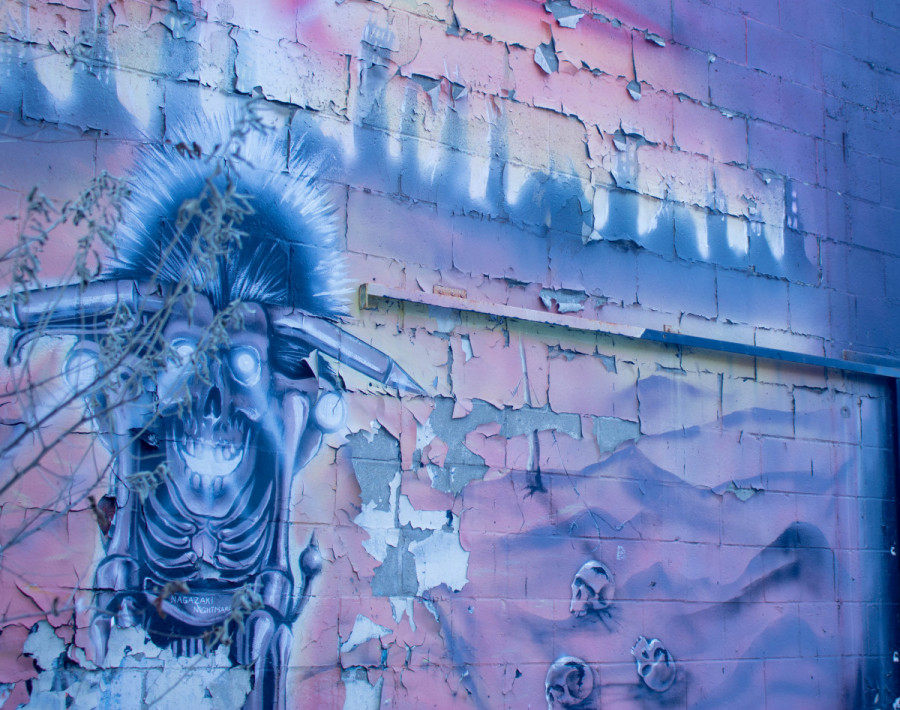
Langlais said that business has picked up since the announcement, which certainly gives credence to Wrinch’s point. But even Wrinch thinks his own point is too negative. “There’s still a ton of support in the community, and most people get that it’s a mutual respect thing.”
When smaller concert venues go out of business, it isn’t just the owner and the concert-goer who are affected. Without these venues, emerging artists don’t really have anywhere to cut their teeth.
Someone just starting their career or smaller independent artists aren’t going to be playing the Bell Centre, which means fewer opportunities to perform in front of crowds and get discovered.
“The MTelus, places like that, if you don’t have a ticket, you’re not going to go there,” said Senez-Gagnon.
“The music isn’t visible. If you pass in front of it, you can’t say, ‘Oh, that looks cool, I’m going to go check it out,’” said Senez-Gagnon.
“Those are the places we’re losing, places where you can go discover stuff spontaneously. Those places are gathering points and discovery points for fringe Montreal music.”

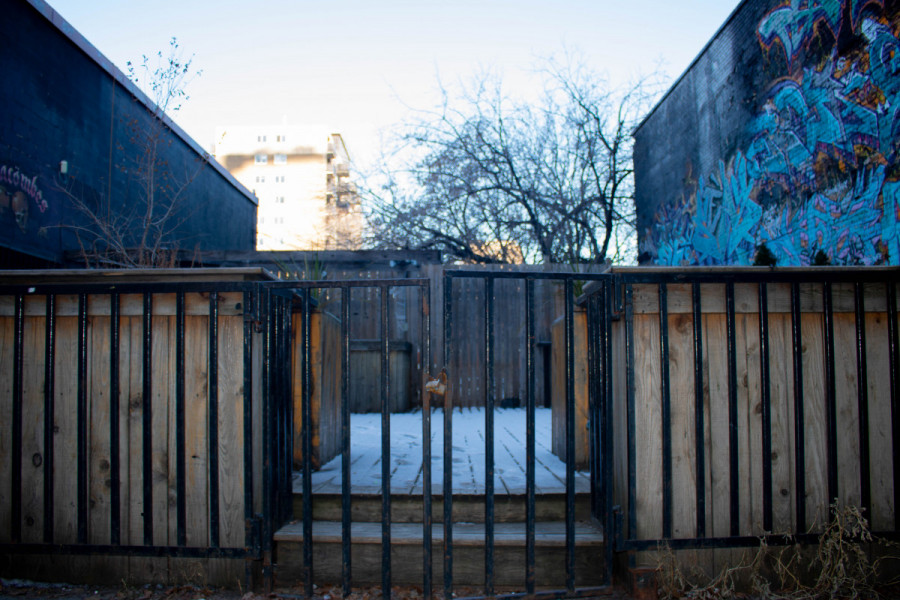
_600_832_s.png)
